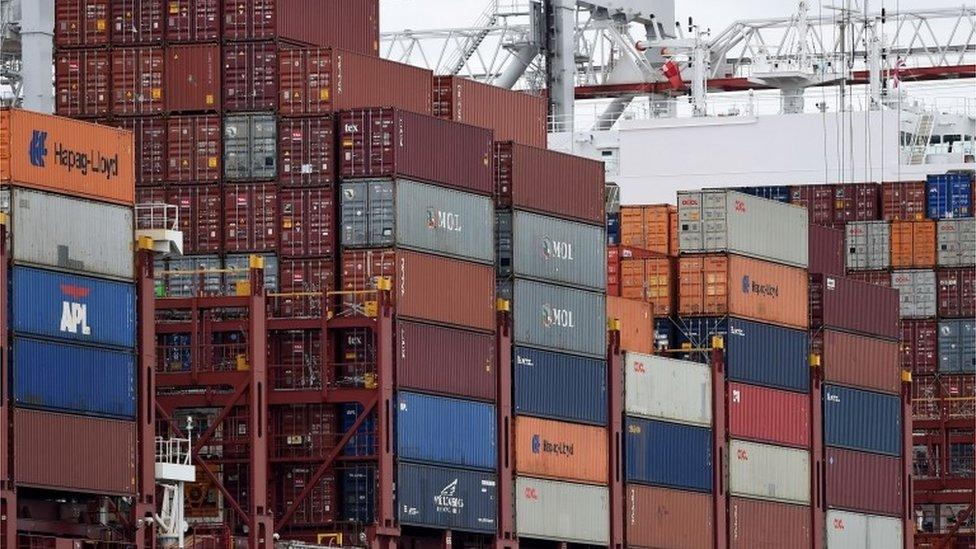UK third quarter GDP growth revised up to 0.6%
- Published

The current account deficit widened in the third quarter
The UK economy grew by 0.6% in the third quarter, according to official figures, faster than previous estimates.
Growth for the July-to-September period had originally been estimated at 0.5%.
New data from the suggested that the business and financial sector was more active than previously estimated.
The ONS also said that growth in the third quarter of the year was helped by "robust consumer demand".
However, the ONS trimmed its estimates of growth in the first and second quarter of the year. It now says the economy grew by 0.3% in the first quarter, compared with an earlier figure of 0.4%, and cut its estimate for second-quarter growth to 0.6% from 0.7%.
Ruth Gregory, UK economist at Capital Economics, said the figures suggested that June's Brexit vote had had little impact on the economy and that growth in the final quarter of the year would be positive.
"The latest set of UK National Accounts leave the economy looking even stronger after the referendum than previously estimated," she said.
"GDP growth in Q3 was revised up from 0.5% to 0.6% and the 0.7% growth rate seen in the second quarter was revised down a touch, to 0.6%, suggesting that the economy didn't lose any pace following the referendum."
showed that the UK's service sector, which accounts for nearly 80% of the economy, grew by 0.3% in October from the month before.
ONS statistician Darren Morgan said: "Robust consumer demand continued to help the UK economy grow steadily in the third quarter of 2016.
"Growth was slightly stronger than first thought, though, due to greater output in the financial sector.
"New figures on services also suggest that growth in that predominant sector of the economy continued into October, helped in large part by another strong showing from the retailers."
Shoppers continued to boost the service sector in October
Martin Beck, senior economic adviser to the EY Item Club, said the figures had brought "some unexpected pre-Christmas cheer".
However, he added there were question marks about how long consumer spending could continue to drive the economy: "With high inflation set to weigh further on spending power next year, the consumer is surely set to falter soon."
showed the UK's current account deficit widened towards record levels in the third quarter, with few signs that the fall in the pound in the wake of the Brexit vote has helped to boost exports.
The gap widened to £25.494bn for the period, from a deficit of £22.079bn in the second quarter.
While that was lower than economists had expected, it caused the deficit to rise to 5.2% of GDP from 4.6%. The record percentage level was 6% in 2013.
- Published21 December 2016
- Published15 December 2016
- Published14 December 2016